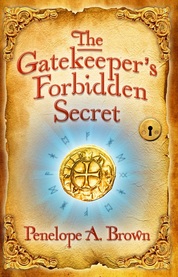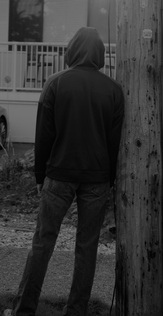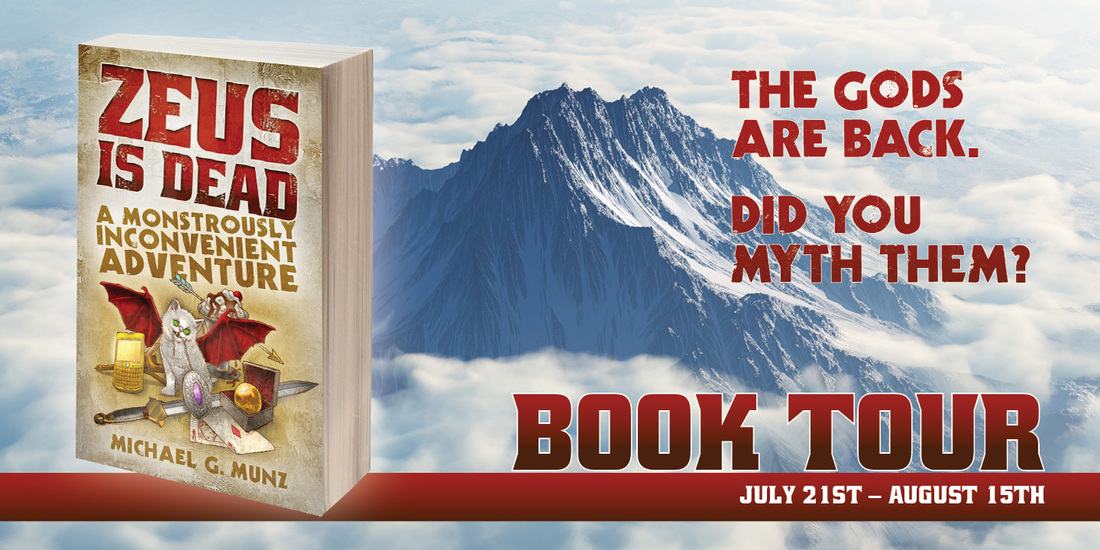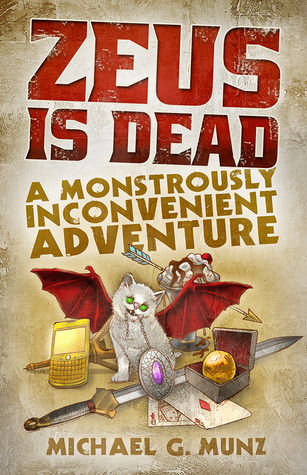 What do you do when your dreams turn into epic stories about advanced civilizations? Penelope A. Brown moved away from the business world to turn those dreams into her debut novel. Penelope is the author of The Gatekeeper's Forbidden Secret and I feel very fortunate to have the opportunity to interview her. Please tell us about yourself. I was originally born and raised in England in a magical little village, which has been the inspiration for my writing. After moving to America with my family, I attended college and graduated with a Bachelors Degree in Business. I worked as a Financial Advisor and later a Business Strategist, before heading an internet company. I longed to write and my passion took hold of me in 2012, when I abandoned all other projects to focus full-time on writing. Tell us about The Gatekeeper’s Forbidden Secret. The Gatekeeper’s Forbidden Secret is part scientific thriller and part epic adventure. Some unlikely souls stumble upon forbidden truths and are faced with difficult life-changing decisions, all while keeping the ultimate secret. What inspired your story? I used to have vivid dreams about fantasy landscapes and advanced civilizations. I would always keep journals until I finally put my overactive imagination to work in the form of a novel. I read that you grew up in England. I remember being stunned by the architecture and stories that sprung up at every location. Do you feel having experience living in multiple countries adds to your stories? Yes, the backdrop of England is essential to the mystery and magic that is tangled throughout the fibers of my novel. What is the last book you read that left a lasting impression and why? The last book I read was Inferno by Dan Brown. Dan Brown incorporates actual history into every work. Some may criticize his technique claiming that it slows the story down, but personally, I enjoying learning new things. What is the hardest part of being an author? I am an introvert, like most authors, so the hardest part of being an author is marketing your book. Also, once people find out what you do, want a thirty second commercial about you. I tend to freeze up in these situations. My sister, who is also an author, suggests groups such as Toastmasters to get over your nerves and always be ready for the spotlight. Are there any television shows you are hooked on? My guilty pleasure is Days of Our Lives. Most of the story lines are ridiculous, but the constant conflicts and love triangles lead for interesting television. Do you have any habits or rituals that help you write? Great question, no one has ever asked me that, but yes I do. I always mediate for a few minutes before I write. It helps to clear my mind. I also play suspenseful music when I write. Don’t tell anyone. If you could take your family on a vacation anywhere in the world, where would you go? One day we will all be going to Venice, Italy! It is definitely on my bucket list. I can see us all in a gondola rowing down the picturesque Grand Canal. More on The Gatekeeper's Forbidden Secret
1 Comment
 By Guest Blogger Z.D. Gladstone When I agreed to write a guest post for Camela on stalkers, it was with the understanding that I would be writing from a mental health perspective and not that of a novelist. Which is not to say that I am an expert on stalking. My background features a BA and an MA in psychology, as well as roughly a decade of experience working with youth and families struggling with mental illness and addiction. I never worked in an in-patient setting (read: hospital or similar) so my experience with previously diagnosed psychotic disorders was fairly limited. However, one of the insidious things about the kind of mental illness that can lead to stalking is how long it can fly under the radar. And I am very familiar with obsession, delusion, and the seeming inability to break unhealthy patterns of behavior. Stalkers are fascinating to average people (in a freaky way) because their mentality is so distant from our own. There is no single mental illness that results in the behavior known as “stalking,” although most stalkers would qualify for some kind of psychotic disorder. That’s because they typically suffer from some kind of delusion, which is central to any kind of psychosis. A delusion is a belief – a concrete, sure-as-gravity, unshakable belief – in something that is not true, and this causes significant personal and/or social distress. This delusion could be that the victim is in love with the stalker, or is cheating on the stalker, or intends to harm the stalker, etc etc. This is a topic that could (and has) fill multiple books. In this brief post, I will write about stalkers from two very different psychological perspectives: Freudian (because there’s just no beating the basics), and Behavioral. Please note that these will be very simplistic; both perspectives can offer far more complex and in-depth explanations than what we have room to explore in a blog. Freudian To the Father of Psychology, everything came back to early childhood experiences and the people most closely involved: the parents. Psychoanalysts believe the Mother is the first and most important female in the life of an individual. The love that an infant feels for his* mother is raw and all-encompassing, because his survival literally depends on its mutuality. It also blurs all kinds of sexual boundaries because the infant has not yet encountered most of the world’s social norms, which is why the Oedipal Complex evolves: the infant’s desire to kill the Father, and have the Mother all to himself. Freud believed that mental illness in adults was the result of unresolved issues in early childhood development—a concept we fully embrace today, although in a less Victorian-influenced framework. Through Freud’s perspective, the Stalker is an individual who never felt he received the necessary love and care from his mother, a rejection that could have proven fatal. This desperate, life-or-death emptiness remains in the unconscious mind into adulthood, until he meets someone who triggers those feelings. In the mind of the Stalker, This is the person who can fulfill me gets paired with This is the person with the power to destroy me. This becomes I need you, I want you all to myself, and also How dare you hurt me, I have to destroy you before you do it again. There’s nothing logical to it, because when these unconscious patterns are laid down the infant is incapable of logic; there is only raw, desperate need. And just as infants and toddlers are capable of illogical and horrible cruelty through their naiveté, so is the Stalker capable of these terrifying behaviors because he regresses to the infantile state of emotion. Behavioral Pure Behavioral Psychology is built on the idea that all animals – including humans – do things because they are rewarded for the action. There is only action and consequence. An infant cries, receives cuddles and food, and therefore will cry in the future because he wants the same reward. The reverse is true with punishment: a child touches a hot stove, burns his hand, and therefore will not touch a hot stove in the future. We use these principles to train our pets, teach our children, and even maintain international relations...with varying levels of success. So the simple explanation for stalking from a Behaviorist view is that the Stalker was at some point rewarded in some way for being around his victim. If he knows the victim personally (e.g. an ex-girlfriend or a co-worker) then their relationship was so powerfully rewarding that any closeness, any interaction triggers the same reward feeling. If he doesn’t know the victim personally – such as with a celebrity – his experiences in watching her shows/listening to her music/reading about her have been rewarding enough to inspire increased closeness. Even though the Stalker’s behaviors become strange and may result in punishment, the initial and lingering rewards are strong enough to overpower them. (If this seems illogical, just remember how many times you’ve had to punish your pet for eating out of the garbage.) These kinds of deeply ingrained patterns of behavior can be very difficult to break, because the Reward Systems are essential to survival, and – once again – defy logic. Conclusion While both of these perspectives are intriguing, it doesn’t take much pondering to realize neither displays the whole picture. Human beings are far too complex and diverse to be captured in any single psychological paradigm. Neurological imaging technology not yet been used in extensive research in the area of stalking, although some initial findings suggest the prefrontal cortex (right above the forehead) may not be doing its job of helping emotion and rational find common ground. But here’s what we DO know about the brain: the more often we repeat a thought or an action, the easier it is for the brain to repeat it. Like a popular bike trail where after a while, a rut appears, and that’s where the wheels just tend to go. Compare your handwriting now to what it was in the second grade—with repetition comes fluidity and ease. So the obsessive thoughts that feed stalking are self-perpetuating. Every time a Stalker allows himself to think about his victim, or look at her picture, or follow her, his brain becomes that much more likely to do it again. And again. And again. And whether that’s because of insufficient care when he needed it most in infancy, or because of a social reward he may or may not remember probably doesn’t matter that much to the person being stalked. *I will use the default male since the majority of stalkers are men, but it should be noted that women follow the same psychological patterns and are just as capable of committing the associated crimes. Z.D. Gladstone Z.D. Gladstone is an aspiring young novelist. Having spent most of her life in the Pacific Northwest, she whet her imagination on rainy afternoons--and her appetite on the warm, bustling kitchens of her family members. She uses her blog to share some of her creative work, both the literary kind (scribbles) and the culinary kind (munch). This weekend I attended my first book launch party, and it was a ton of fun! Michael Munz hosted the event at Wayward Coffee House. The minute I walked into the cafe, I knew I'd found a new place to frequent. Star Wars, Star Trek, and Firefly paraphernalia abounded with a small smattering of Lord of the Rings. A large bookcase sat in one corner, well stocked with science fiction and fantasy novels. Combine that with hemp milk lattes and wi-fi, and I'm in heaven. It was the perfect place to host a launch for a contemporary mythological fantasy and a viewing of Clash of the Titans (the 1981 version, of course). Unfortunately, I missed the reading, but my husband and I have started the book. Despite the fact that we are both reading it, my husband has been reading small snippets from the novel out loud, a habit he has when he is entertained. So far, it has been really funny. When Michael asked if I would be willing to participate in his book tour, the answer was a resounding, "Of course!" The following is an excerpt from Chapter Thirteen of Michael G. Munz's epic comedic fantasy Zeus Is Dead: A Monstrously Inconvenient Adventure. Ares, the god of war and part of a small conspiracy that found a way to kill Zeus, is waiting while a goddess (whose name is unknown to the reader but known to Ares) instructs her mortal son Thad in the next room with regard to their plan to thwart Apollo's attempts to somehow resurrect Zeus by way of another mortal named Leif Karlson… Ares listened to the boy and his immortal mother from the adjoining room. To the untrained eye (of which there were none in the otherwise empty suite), he was seething. His teeth gritted, his hands clutched at the fireplace poker he’d grabbed in the event anything should need pokering, and his pacing feet ground into the carpet in a way that would, given perhaps a decade, give the Grand Canyon a run for its money. The trained eye, however, would tell you that seething was the wrong word. (There were no trained eyes in the room either, but as we are also imbuing trained eyes with the power of speech, questioning their existence in a given area is unfairly pedantic.) Seething was among Ares’s five resting states, along with raging, blood-lusting, hating, and missing important details. No, Ares was more than seething, more than raging, more than hateful at Thad’s utter failure to do as he was told. Ares was annoyed. When Athena first designed the turtle-frog (official Olympian registry name: “Testudomeleon ATH 4R”), she had for whatever reason consulted Ares about its greater arms. In an uncharacteristic fit of cooperation―perhaps brought on by either boredom or the hope that the goddess would sleep with him―he had given a small bit of help. Then the thing got killed by that Monster Slayer guy. Ares was the first one Athena told. The insufferable bleeding-heart-defense queen blamed the whole thing on failure of his arm design, of course. Argument ensued, and damned if it didn’t come out then that the victorious hero got a little help. The pieces were easy to put together from there, especially since Ares wasn’t alone when he was told and therefore had some help to figure it out. And so Ares was annoyed. The blond mortal bugger got away from them so easily! The others were fools. Send another mortal to watch in their place? A mortal? Discretion be damned, that’s what he should have told ’em! Who cared how much attention they’d attract? Stupid jerk Hades! Okay, so they’d flick Thad back on the job and put the fear of the gods into him if he screwed it up again. Titans’ armpits, that wouldn’t be enough! And what the heck was taking her so long? The goddess returned just as he’d made up his mind to yank the boy out of the water and throw him where they needed him. “So?” Ares asked. “Boy’s as smart as his father,” she sighed. “Yeah, so?” That didn’t tell him nothing, even if he’d known who the boy’s father was. “He’s back on the trail. I gave him a good head start.” “A head start? That’s it?” She pouted. “Apollo’s champion might have a Muse watching, or Apollo himself. Do you want them to see him just teleport in?” Ares growled. “Then I’ll go myself.” “Don’t be stupid.” “I’ll be what I bloody want to be! Can’t matter anyhow if they see me. I said I killed Zeus all along! I got no cover to blow.” “Ares, you’re a boasting, blustering brute.” “Um . . . Thanks?” She rolled her eyes. “I mean no one believes you! They just think you stole the credit to look stronger. Please, for me, let Thad do his job.” Ares held her gaze and grunted, thinking a few moments before seizing on an alternative that would end this whole thing a small sight quicker. “You’re right,” he said. She beamed. “Always am!” “See you back on Olympus.” Ares turned to go. “There’s things I got to take care of.” She grabbed his arm and drew him back. “You’re planning something, aren’t you?” she asked with a poke at his chest. “I mean insomuch as you plan anything.” “What? Nah.” He turned again only to have her yank him back, glaring. “Or, to put it another way, ‘yes,’” she said. “It’s all over your face. What is it?” “Oh for the love of—” He shoved away her grip. “So what if I am planning something?” “Hrm. We’ve already got a plan? Stick to that!” “Your plans’re what got us into this! We wait any longer for this one to work and we’ll still be waiting while Zeus shoves lightning down our throats! I’ll just kill the twerp! He’s mortal; that’s what they’re for!” “You can’t!” “Sure as Hades I can. Just one more dead mortal on a long, long list. I’ll make it quick if you’re so squeamish.” In fairness, he supposed she didn’t look squeamish. She looked angry, which frankly was quite a good look for her. Then again, it was a good look for everyone so far as Ares was concerned. “Ares, no! Hades said you can’t just—” “You can ram a pike up what Hades said!” “We don’t know enough about what Karlson might do!” “We don’t need to know nothing!” he fired. “What if he did what he was supposed to when your little pipsqueak lost him, eh? What if he does it when Thad loses him next time?” “Thad will not lose him again!” “Bettin' our hides on that, are you?” She hesitated. “Even if Thad does lose him, Karlson’s distracted. He’s in love! Mind-bogglingly, distractedly infatuated!” Something slid into the war god’s mind and failed to stick. Ares stopped. “. . . He’s fat?” The other blinked. “Infatu—! It means ‘in love.’” “Yeah, like that ever solved anything. This ain't a movie.” She went on. “Fine, don’t listen to me. But you kill Karlson and you know, you know that Hades will come down on you. Hard. You know what he’s like when he’s angry.” “He don’t scare me.” “Liar. He’s older than you, Ares. You can’t stand against him alone.” “So you can help me.” “I agree with him! Karlson’s death might be the very trigger to bring back Zeus!” “And . . . it might not be!” he stammered. “You don’t know!” “Exactly!” Ares glared at her. He hated arguments that made sense. They usually meant that he couldn’t do what he wanted to, if he paid them any attention. So as a matter of course, he ignored them as best he could. But she wasn’t going to stop nagging him. “Fine,” he said finally. “I won’t go kill him.” “And you won’t go watching him either. Not yet, anyway.” He only then realized he still had the fireplace poker in his hand. He tossed it to the floor, glad for the chance at least to throw something. “Fine.” She smiled. “Thank you. You know how these things work; there are all sorts of little rules and such, especially with death.” Ares just grunted at that. “I’ll make it up to you in some, oh, creative way, I’m sure. Come on. Let’s go.” “Uh-huh.” He followed, pondering. All sorts of little rules and such, especially with death. Another scheme was creeping into his mind in an attempt to take form. He started to hum Wagner to keep it from showing on his face this time. After all, he’d only said that he wouldn’t kill Karlson. Didn’t mean someone else couldn’t. Heck, if he played it right, even Hades couldn’t fault him for it. About Michael G. Munz An award-winning writer of speculative fiction, Michael G. Munz was born in Pennsylvania but moved to Washington State in 1977 at the age of three. Unable to escape the state’s gravity, he has spent most of his life there and studied writing at the University of Washington. Michael developed his creative bug in college, writing and filming four exceedingly amateur films before setting his sights on becoming a novelist. Driving this goal is the desire to tell entertaining stories that give to others the same pleasure as other writers have given to him. He enjoys writing tales that combine the modern world with the futuristic or fantastic. Michael has traveled to three continents and has an interest in Celtic and Classical mythology. He also possesses what most “normal” people would likely deem far too much familiarity with a wide range of geek culture, though Michael prefers the term geek-bard: a jack of all geek-trades, but master of none—except possibly Farscape and Twin Peaks. Michael dwells in Seattle where he continues his quest to write the most entertaining novel known to humankind and find a really fantastic clam linguine. Find out more about him at michaelgmunz.com. While there, it wouldn't hurt to get a FREE copy of Mythed Connections, the spiritual prequel to Zeus is Dead. Contact Michael on Twitter / Facebook |
Camela ThompsonFreelance writer and Dark urban fantasy author featuring vampires with bite. My BooksCategories
All
Archives
July 2020
|




 RSS Feed
RSS Feed